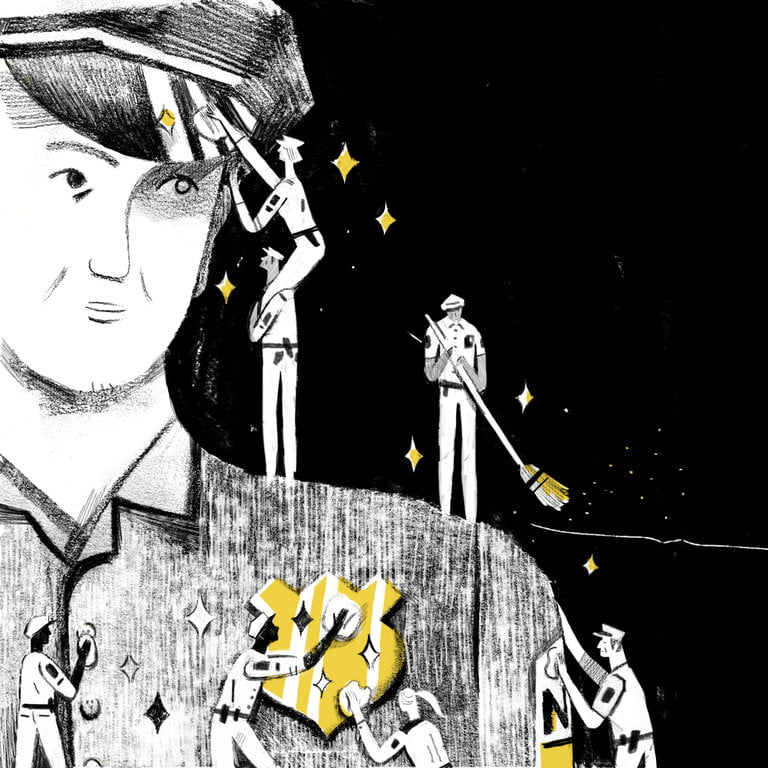
Here’s one good thing about having a new police commissioner to succeedWilliam Bratton: Maybe New York can finally stop arguing about “broken windows” policing.
It is no knock on Mr. Bratton to welcome a change of subject. There is no disputing the successes of his late-career stint in Mayor Bill de Blasio’s administration. On his watch, a safe city got even safer, and police-community relations started getting better. But Mr. Bratton’s stature and close identification with that more-than-30-year-old, often-misunderstood catchphrase — and his stubborn need to continually defend it — became a source of unnecessary friction.
“Broken windows,” a shorthand term for the strategy of aggressively policing minor violations to prevent serious and violent crimes, came to mean different things to different people. To Mr. Bratton, an early adopter, it is a byword for law-and-order’s tactical victory over urban chaos. To his critics, it is a euphemism for oppressive policing, particularly in minority neighborhoods, particularly against young black and Latino men.
But now Mr. Bratton won’t be here to cling to it, critics can’t demand his resignation over it, and no one needs to be trapped in the pointless debate over whether hating “broken windows” and demanding reform means hating the police. The next commissioner, Chief of Department James O’Neill, a career cop who is to take over in mid-September with Mr. Bratton’s blessing, can move beyond it. He can focus on a task he was assigned before his promotion: developing the Police Department’s revamped and expanded program of neighborhood policing, which Mr. de Blasio hopes will keep crime low while defusing the “broken windows” debate.
Mr. Bratton, to his credit, has helped lead the city in the right direction, overseeing sharp drops in arrests for minor offenses even as crime rates continued to fall. The path is open for Commissioner O’Neill and Mr. de Blasio to seek further distance from the era of overly aggressive, numbers-driven, quota-distorted police tactics. Friday is the third anniversary of thelandmark federal court ruling by Judge Shira Scheindlin that found “stop and frisk” policing as practiced in New York weighed heavily on innocent young men in minority neighborhoods and was unconstitutional. Three years of falling crime has proved the critics of stop-and-frisk right.
But it doesn’t mean that police brutality is vanquished, or that the task of reform is done. Chief O’Neill accepted the new job promising continuity. He said he would preserve a deal Mr. Bratton had struck with the City Council speaker, Melissa Mark-Viverito, to enact some policing reforms as administrative policy, sidestepping a City Council effort to enact them as law. That puts a heavy burden on Chief O’Neill to achieve meaningful changes in police behavior — to increase respect, transparency and accountability in officers’ encounters with the public.
Mr. Bratton is known for pioneering aggressive, data-driven policing that targets hot spots of crime, seeks to contain mayhem before it spreads, to catch dangerous criminals and scofflaws for minor violations, to get guns off the street. Few would argue that those goals, in the abstract, are anything but good. But on the street, abstract principles can give way to atrocities, like the fatal 2014 police gang-tackle of Eric Garner, an unarmed black man who had been selling loose cigarettes, an offense that should not have left him dying on the pavement, unable to breathe.
Chief O’Neill’s job as commissioner will be daunting but straightforward. He will have to fulfill Mr. de Blasio’s promise to make neighborhood policing a permanent and meaningful change in how the department operates, with well-trained officers getting out of their patrol cars, getting to know shopkeepers and pastors, children and parents, gaining trust, de-escalating conflicts, preventing crime. His officers will have new technologies to help make that happen, like body cameras and gunshot-spotting devices, that are promising as tools, but no panacea for responsible policing.
[Source: The New Yourk Times]




